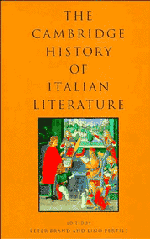Finding Books
Step One: UIUC Online Library Catalog
There are two ways to search the UIUC Library catalog. Both offer the same content but the method of searching and presentation of results varies.
- Through the new Primo Library Catalog. This catalog requires you to register with a login and a password to request materials. It also lets you search books in I-share (see below for more details.)
- Through the Library Easy Search. This interface lets you search the UIUC catalog for books, articles, journals and media. .
Getting the actual book: When you locate your item you have two choices.
Print books
You can request the item and pick it up at any of the departmental libraries. Or, you can retrieve the book yourself from either the main stacks or the departmental library where the book is located. If you choose this option, make sure you jot down the location and call number of the item.
Electronic Books
Access will depend on the publisher. In some case you will be able to download full books via PDF. In others you might be able only to view the book online. In all cases the Library follow the publisher's requirements.
Step Two: I-Share
Once you have verified that the book you are looking for is either not located in the UIUC catalog or all copies are checked out, you may order it through Primo Library Catalog and selecting "All I-share Libraries." Items typically arrive within 5-10 days and you will receive an email when the item is available for pick up.
Step Three: Interlibrary Loan
If the item is not available in the UIUC catalog or through I-Share, then your next stop will be Interlibrary Loan and Document Delivery. First, keep your full citation handy -- you'll need it. Second, login to the ILLiad server using your NetID and password. From the ILLiad main menu, select "Request a Book." Be sure to fill out as much of the form as possible, including the source of your citation. This will ensure that ILL can place your request in a timely manner. You'll be notified by email when your item is ready to be picked up.
WorldCat -You can search WorldCat to find books on your topic, which might not be in the UIUC nor the I-share catalog. Once you find a title of interest, you can order it through Interlibrary Loan
Useful Subject Headings
Below are subject headings from the library catalog that may help your research:
Comic books, strips, etc -- Italy
Comic books, strips, etc -- Italy -- History and criticism
Detective and mystery stories, Italian
Relevant Databases
 The MLA International Bibliography presents detailed information on more than 7,100 periodicals in the areas of literature, language, linguistics, and folklore, with 4,400 currently indexed in the MLA International Bibliography.
The MLA International Bibliography presents detailed information on more than 7,100 periodicals in the areas of literature, language, linguistics, and folklore, with 4,400 currently indexed in the MLA International Bibliography.
-
ProQuest One Literature This link opens in a new windowThis database contains 3 million literature citations from thousands of journals, monographs, dissertations, and more than 500,000 primary works. These include rare and obscure texts, multiple versions, and non-traditional sources like comics, theatre performances, and author readings. It also includes book reviews and criticism related to this content.
 LCO covers a range of modern and historical views on authors and their works across regions, eras and genres, offering tens of thousands of hard-to-find critical essays.
LCO covers a range of modern and historical views on authors and their works across regions, eras and genres, offering tens of thousands of hard-to-find critical essays.
 LRC is a searchable database of full-text articles, essays, book reviews, plot summaries, poems, short stories, plays, and interviews with contemporary writers.
LRC is a searchable database of full-text articles, essays, book reviews, plot summaries, poems, short stories, plays, and interviews with contemporary writers.
 Project Muse provides full-text access to over 200 scholarly journals in the following fields: literature and criticism, history, visual and performing arts, cultural studies, education, and many others.
Project Muse provides full-text access to over 200 scholarly journals in the following fields: literature and criticism, history, visual and performing arts, cultural studies, education, and many others.
 JSTOR provides page images of back issues of the core scholarly journals in the humanities, social sciences, and basic sciences from the earliest issues to within a few years of current publication. Users may browse by journal title or discipline, or may search the full-text or citations/abstracts. New issues of existing titles and new titles are added approximately on a weekly basis.
JSTOR provides page images of back issues of the core scholarly journals in the humanities, social sciences, and basic sciences from the earliest issues to within a few years of current publication. Users may browse by journal title or discipline, or may search the full-text or citations/abstracts. New issues of existing titles and new titles are added approximately on a weekly basis.
Italian Literary Awards
There are two major literary awards in Italy:
The Premio Strega is the most prestigious award, given out annually for the best prose fiction published in Italian.
The Premio Campiello is an annual literary award celebrating Italian fiction.
Popular Fiction
Popular fiction in Italy takes a variety of forms; popular genres include the likes of fantasy and science fiction, historical fiction, and romance. Italy, though, has one genre that's particularly popular: the mystery, or il giallo.
The term, giallo (meaning yellow in Italian), specifically refers to Italian mystery fiction, named for a series of inexpensive paperback mystery novels with yellow covers. The genre has elements of the thriller and horror genres, mixed with the typical detective/crime novel. In addition to its popularity in literature, the giallo also influenced film, with murder mysteries and horror flicks growing in popularity in the 20th century.





